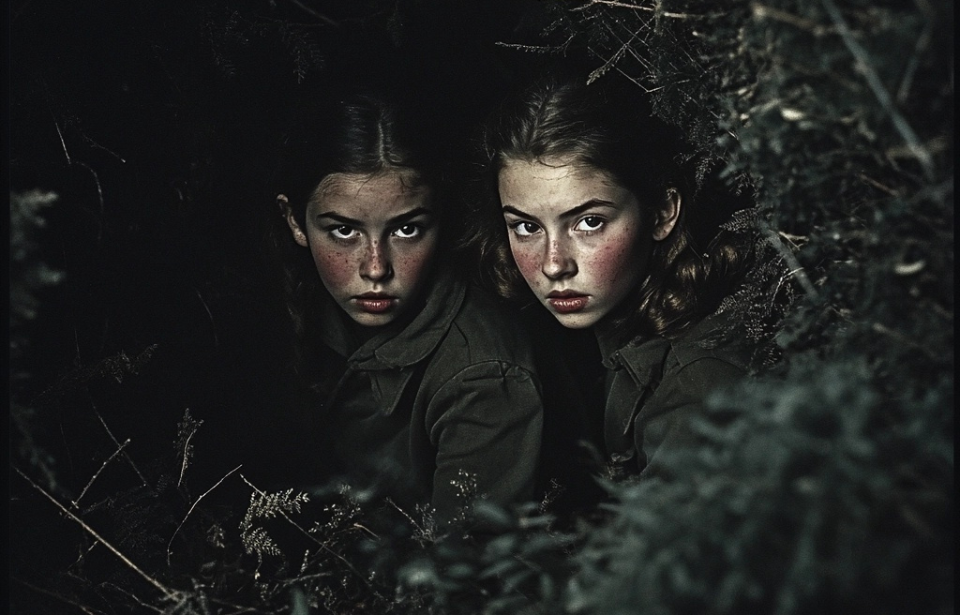During World War II, resistance movements emerged across many countries occupied by Nazi Germany, with brave individuals risking their lives to fight back. While men made up the majority of these fighters, some women played crucial roles by using their wit, courage, and often their underestimated appearance to outsmart the enemy and support the resistance. Their efforts included smuggling information, sabotaging equipment, and even taking part in direct combat—all while defying the expectations of the time.
Freddie and Truus Oversteegen
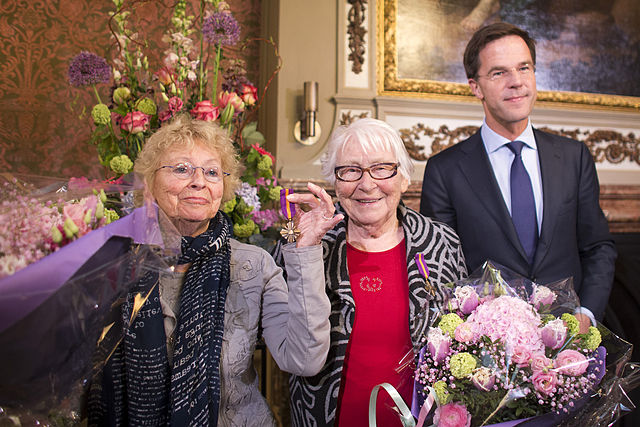
Truus and Freddie Oversteegen were raised in Haarlem, Netherlands, by their single mother. Freddie, two years younger than Truus, had a youthful look, often wearing her hair in braids—a detail that later proved useful in her work with the Dutch Resistance.
Their mother, a dedicated Communist, taught them from an early age to stand up for what was right. As World War II approached in 1939, she welcomed Lithuanian refugees and a Jewish couple into their home. This act of kindness left a lasting impact on the sisters, reinforcing the importance of helping others, no matter the risk.
Joining the Dutch Resistance
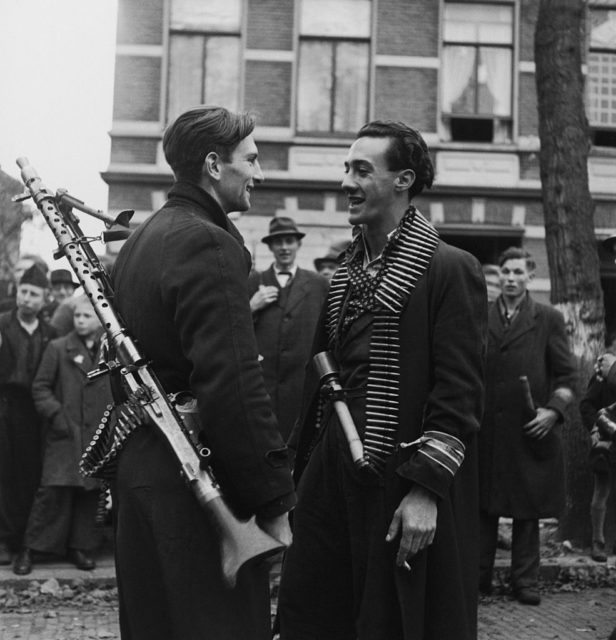
They did different jobs for the Resistance
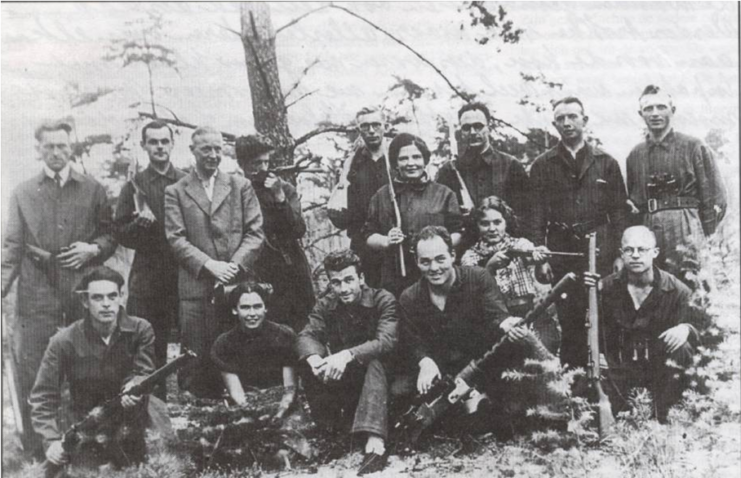
Freddie and Truus were initially unaware of the full extent of their involvement with the Resistance. In the beginning, their assignments included sabotaging bridges and railways with dynamite, focusing specifically on the line between Ijmuiden and Haarlem. They also set fire to a German warehouse and helped smuggle Jewish children out of the country, even assisting some in escaping from concentration camps.
Their gender played a crucial role in their effectiveness, as most Resistance operations were associated with men. The Germans assumed that women were only involved in distributing newspapers and other materials. Being both female and young allowed them to operate with little suspicion.
Becoming assassins
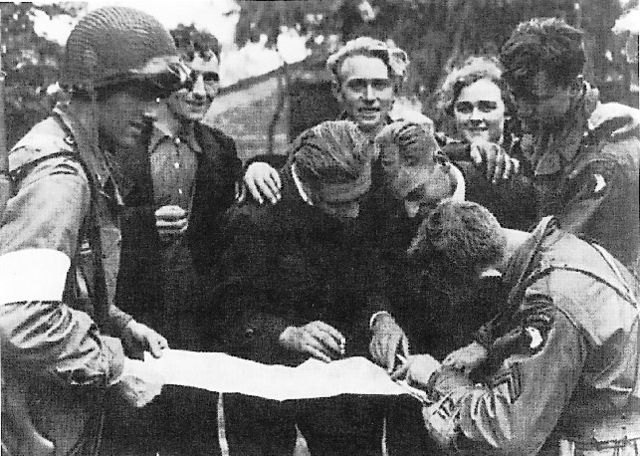
Before long, the girls were tasked with carrying out assassinations of Germans and Dutch collaborators. Using their youthful appearance, they lured German officers into the woods – either while on patrol or in a local tavern – and shot them. According to Freddie, it was something they had to do. “It was a necessary evil, killing those who betrayed the good people,” she said.
In 1943, the sisters joined up with Hannie Schaft, a former university student who’d dropped out after refusing to sign a loyalty pledge to Germany. She’d started out with small acts, such as stealing identification cards for Jewish people. When she began assassinating Germans, she became known as “the girl with the red hair.”
Working with Hannie Schaft
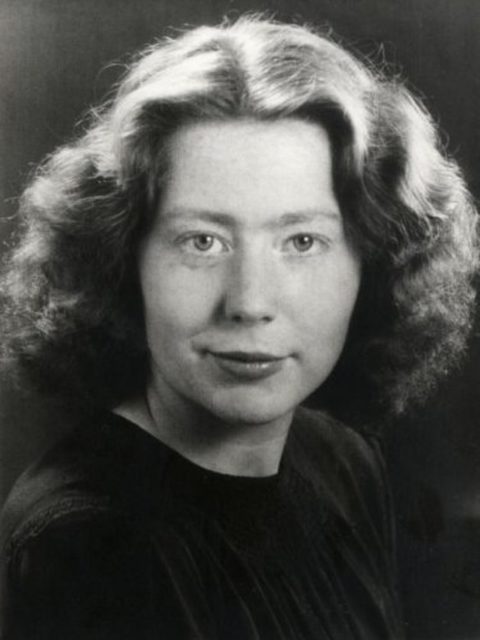
The trio formed an assassination and sabotage cell. Along with assassinations, they hid firearms in the baskets of their bicycles, and at one point erected a Communist flag at the headquarters of the National Socialist Movement. They were so efficient that, by the end of the war, there was a 50,000 guilders reward for their capture.
On March 21, 1945, Hannie was arrested at a military checkpoint in Haarlem while in possession of the illegal Communist newspaper, de Waarheid. She was subsequently interrogated, and on April 17, 1945, was executed by Dutch officials. Following the conclusion of the war, she was buried with honors in the presence of Queen Wilhelmina and Prince Bernhard, and today over 15 cities in the Netherlands have streets named after her.
Post-war struggles
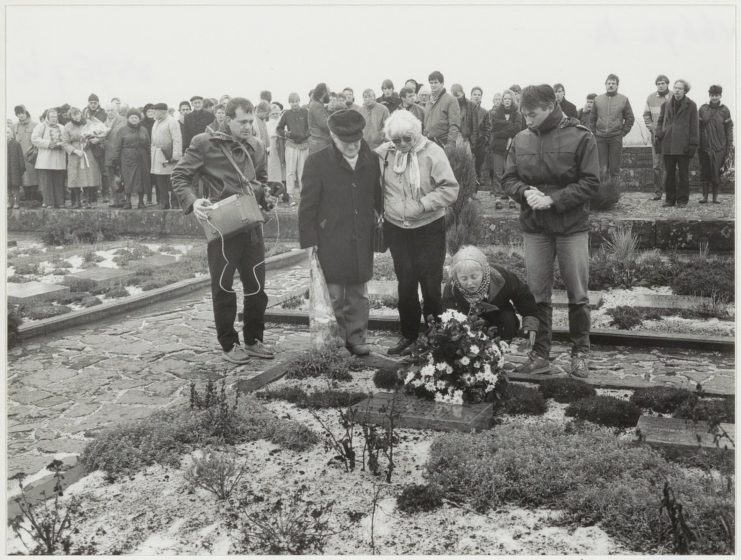
Truus and Freddie never revealed how many people they killed throughout the duration of their Resistance work. When asked, Freddie replied that they were soldiers and soldiers don’t reveal such details.
Following the war, Freddie and Truus struggled with the trauma of their friend’s death and the murders they’d committed. To cope, Truus became an artist and spoke at war memorial services. Freddie coped “by getting married and having babies,” yet nothing could help the insomnia she suffered.
The sisters were awarded the War Mobilization Cross

The sisters didn’t receive much recognition for their wartime efforts right away, largely because they were labeled as Communists. It wasn’t until 1967 that Truus was honored as Righteous Among the Nations by the State of Israel—a prestigious award given to non-Jews who risked their lives to save Jews during the Holocaust.
Years later, in April 2014, the Dutch government officially acknowledged their bravery by awarding them the War Mobilization Cross.
Both sisters have since passed away. Truus died on June 18, 2016, and Freddie followed on September 5, 2018.
